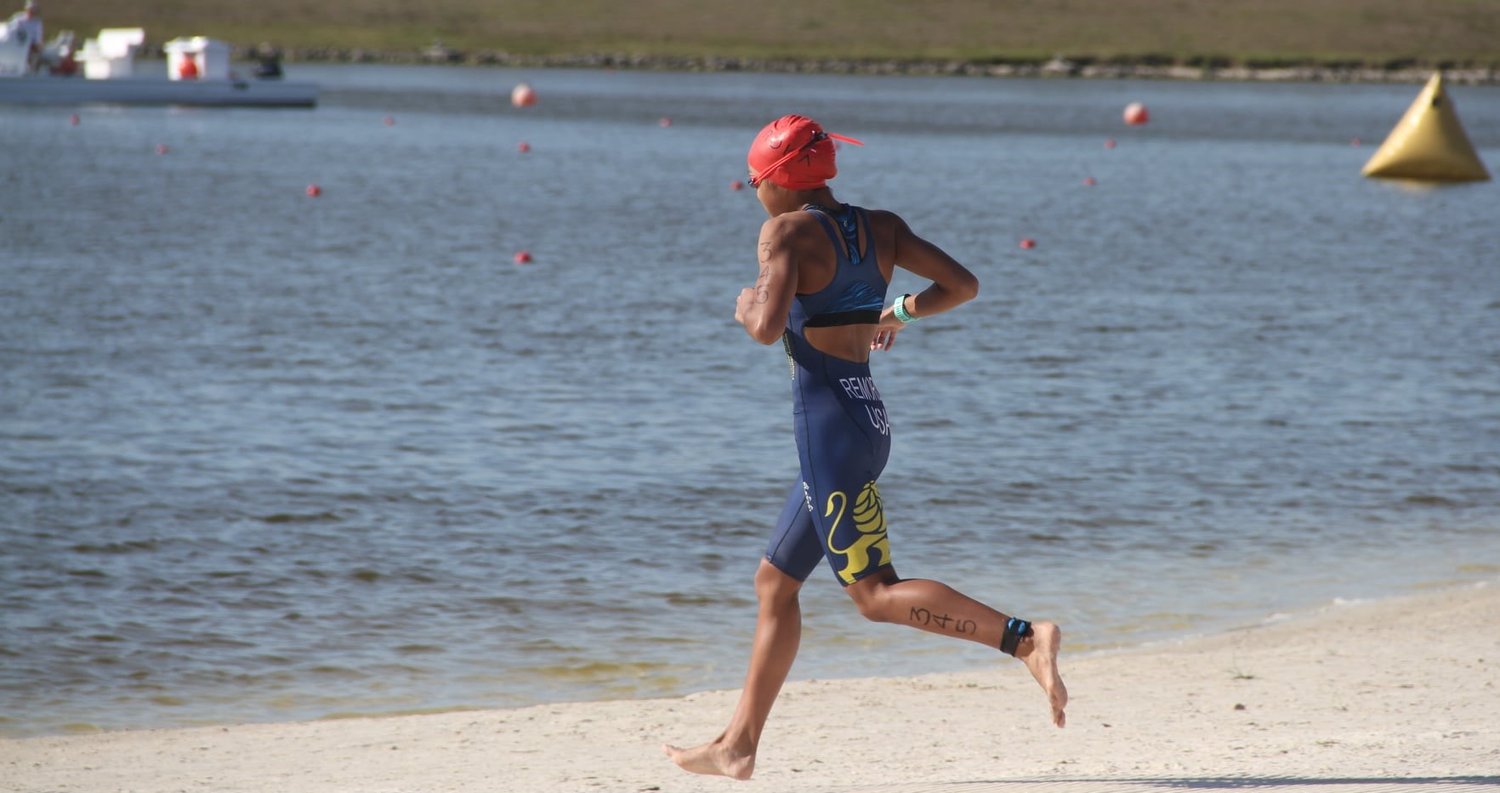
COACH JIM'S TRI TIPS: COOLING STRATEGIES FOR HOT TRAINING + RACING
It is hot and humid outside pretty much everywhere these days. As you work on becoming more acclimatized to the heat, remember to slow your pace, keep on an eye on your heart rate, avoid the hottest parts of the day, and increase your hydration while training.
Controlling your core body temperature is essential for pacing in any sport in the heat. When your core body temperature increases, you also experience cardiac drift, where heart rate increases and your pace stays the same or decreases. Furthermore, when your core body temperature increases, your body increases sweat and skin blood flow to help control that increase and takes the necessary blood flow away from working muscles. When this happens, we start to feel like we are expending more energy when we are actually not. The energy has just been diverted. As the energy has been diverted to cooling the body, if we do not slow down and address the increased core body temperature then we are at risk for heat exhaustion and heat stroke.
During competition and training we can address this increase in core body temperature by hydrating (make sure and check out our Advanced Sweat Testing at www.playtri.com/testing for your best hydration strategy), maintaining electrolyte balances, and acclimatizing to the heat. However, these are not the only practices to adopt for training and racing during the summer months. Pre-cooling to slightly lower your core body temperature before you start can extend the amount of time you can train or race before you hit that critical temperature threshold that causes your performance to decline.
If you watch any of the Grand Tours in professional cycling, you can see the athletes applying different pre-cooling strategies during their warm up protocol before time trials. They use ice vests, stockings filled with ice placed on the back of their necks, fans, shade, and water mist to help regulate their core body temperature.
At Playtri we use pre-cooling strategies to help athletes lower their core body temperature before they start training or racing, which can extend the amount of time before they hit that critical temperature threshold that causes performance to decline. Here are three pre-cooling strategies that I use with all my Playtri athletes when the heat and humidity show up.
-
Freeze a paper cup of your favorite hydration product, such as Skratch 10-20 minutes before your next workout or race in the heat, drink your hydration product slushy and get on your way.
-
Wet a few hand towels, place them in the freezer overnight. Then put them on your neck, head, back, and between your thighs 10-15 minutes before your workout. Then put them back in the freezer so that they are ready for you when you are done with your workout.
-
Cold Water Immersion. Take a cold shower or bath before your next training session in the heat. This is not practical for race day, so an alternative for race day is those frozen hand towels.
Pre-cooling is very effective, but the positive performance impacts last only about 20-25 minutes. Once those performance impacts wear off, you can use some of these strategies in addition to hydrating and maintaining electrolyte balances to regulate your core body temperature.
-
Keep your kit wet on the bike. Take water hand offs at all aid stations and get your kit wet.
-
Put ice on your torso during the run. Put ice in your sports bra, in your pockets, and down the front and back of your race kit.
-
Ice your neck and head during the run. Wear a hat (not a visor) and a neck cooler or bandana to hold ice in these locations. Add water and ice to these at all aid stations.
-
Ice peripheral arteries during the run. Put ice in your arm coolers (if you are wearing them) and hold ice in your hands.
-
Wear light colored kit for hot races. (Google Torbjørn Sindballe and look at the white kit he wore in Kona 2007, including one latex glove he wore to hold ice.)
Remember that it is important to try these pre-cooling and core temperature management strategies during training before you try them on race day. For my Playtri athletes who have upcoming hot and humid races, I encourage them to try out these core temperature management strategies at least 2-3 times before race day by setting up a loop or out-and-back course for their bike and run training that will bring them back to their house where they have a cooler stocked with lots of ice and cold water. Learning how to manage the heat is a part of summer racing that can be developed with practice.
If you have questions about how to beat the heat, or want to know more about coaching options, you can email me at [email protected], or visit my bio linked below.
Jim Rowe is a Playtri Level 4 Coach, a USAT LI Certified Coach, and NASM Certified Personal Trainer who works with adult athletes of all abilities from beginners to IRONMAN World Championship qualifiers. Learn more about Jim at www.playtri.com/jim-rowe.




